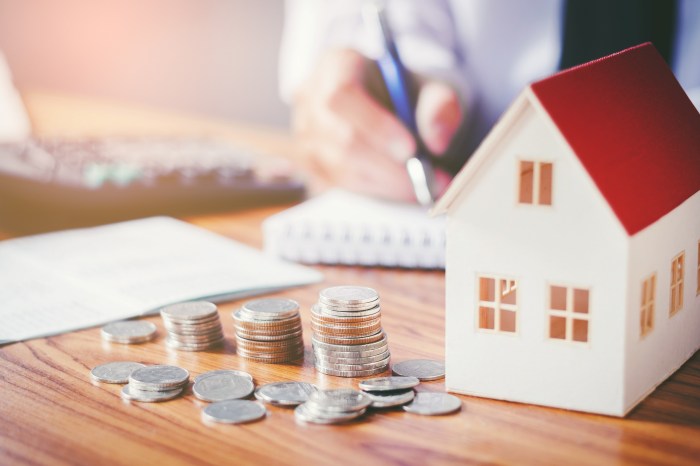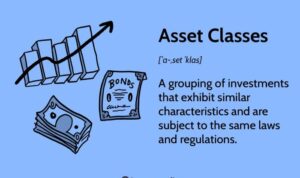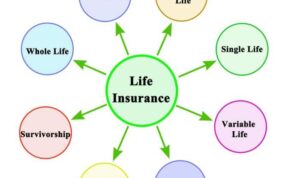Hey there, future homeowners! Let’s dive into the world of saving for a home down payment, where every penny counts towards your dream abode. Whether you’re a budgeting pro or just starting out, this guide will show you the ropes in style.
Now, let’s get down to business and explore the ins and outs of saving for that down payment you’ve been dreaming of.
Importance of Saving for a Home Down Payment

Saving for a down payment is crucial when buying a home because it shows lenders that you are financially responsible and capable of managing a significant financial commitment.
Benefits of a Larger Down Payment
- Lower Interest Rates: Lenders often offer better interest rates to homebuyers with larger down payments, resulting in lower overall costs over the life of the loan.
- Reduced Monthly Payments: A larger down payment means borrowing less money, leading to more manageable monthly mortgage payments.
- Equity Build-Up: By putting more money down upfront, you start off with more equity in your home, which can provide financial stability and flexibility in the future.
Impact of Down Payment Size on Mortgage Terms
- Smaller Down Payment: A smaller down payment typically results in higher interest rates, increased mortgage insurance costs, and a longer repayment period.
- Larger Down Payment: On the other hand, a larger down payment can lead to more favorable mortgage terms, lower overall costs, and quicker equity build-up.
Strategies for Saving Money
Saving money for a home down payment requires discipline and smart financial decisions. Here are some strategies to help you reach your goal faster:
Cutting Expenses
- Track your spending: Take note of where your money is going each month and identify areas where you can cut back.
- Reduce unnecessary expenses: Cut back on eating out, subscription services, and other non-essential purchases.
- Lower utility bills: Save on electricity, water, and heating by being mindful of your usage and making energy-efficient choices.
- Shop smart: Look for discounts, buy in bulk, and consider purchasing second-hand items to save money.
Setting Up a Separate Savings Account
Having a dedicated savings account for your down payment can help you stay organized and motivated. Here’s why it’s beneficial:
- Prevents spending: Keeping your down payment funds separate reduces the temptation to dip into them for other expenses.
- Earns interest: Some savings accounts offer interest on your balance, helping your money grow over time.
- Track progress: Seeing your savings grow in a separate account can boost your confidence and commitment to reaching your goal.
Increasing Income
To speed up your saving efforts, consider ways to increase your income:
- Side hustle: Take on a part-time job, freelance work, or start a small business to earn extra money.
- Negotiate a raise: If you’re due for a performance review at work, prepare a case for a salary increase based on your contributions and achievements.
- Rent out space: If you have a spare room or property, consider renting it out for additional income towards your down payment.
- Invest wisely: Explore investment opportunities that can generate passive income to supplement your savings.
Financial Planning and Budgeting
Budgeting is a crucial aspect of financial planning when saving for a home down payment. It helps individuals track their expenses, prioritize savings, and stay on target with their financial goals.
Creating a Budget
Creating a budget involves outlining your income, expenses, and savings goals. By tracking where your money is going, you can identify areas where you can cut back and allocate more funds towards saving for a down payment.
- Utilize budgeting apps like Mint or YNAB to categorize expenses and set savings goals.
- Consider using the 50/30/20 rule, where 50% of your income goes towards necessities, 30% towards wants, and 20% towards savings.
Paying Yourself First
Paying yourself first means prioritizing saving before spending on other expenses. By setting aside a portion of your income for savings as soon as you receive it, you ensure that you are consistently building towards your down payment goal.
- Automate your savings by setting up direct deposits into a separate savings account dedicated to your down payment.
- Consider increasing your savings rate whenever you receive a raise or bonus to accelerate your progress.
Budgeting Tools and Apps
There are various tools and apps available to assist in managing finances effectively and sticking to a budget.
- Mint: Helps track spending, set budgets, and monitor financial goals.
- YNAB (You Need a Budget): Focuses on giving every dollar a job and helps users prioritize savings.
Investment Options for Down Payment Savings
When it comes to saving for a down payment on a home, choosing the right investment option can make a significant difference in reaching your financial goals. Let’s explore the various investment vehicles available and the risks and benefits associated with each.
High-Yield Savings Accounts
High-yield savings accounts offer higher interest rates compared to traditional savings accounts, allowing your money to grow faster. While they offer better returns than regular savings accounts, the interest rates may still be relatively low. These accounts are a safe option for short-term savings goals like a down payment, providing liquidity and easy access to your funds.
Certificates of Deposit (CDs)
CDs are time deposits that offer fixed interest rates for a specified period, ranging from a few months to several years. They typically offer higher interest rates than savings accounts but require you to leave your money untouched for the duration of the CD term. CDs are a low-risk investment option suitable for those with a longer timeframe for saving for a down payment.
Stocks
Investing in stocks can potentially offer higher returns compared to savings accounts or CDs, but they come with greater risk. Stock prices can fluctuate, and there is no guarantee of returns. Stocks are more suitable for long-term investment goals, and it’s essential to diversify your portfolio to minimize risk.
Choosing the right investment strategy depends on your financial goals, risk tolerance, and timeline for purchasing a home. It’s crucial to assess your individual circumstances and consult with a financial advisor to determine the best investment option for your down payment savings.
Government Programs and Assistance
Government programs and assistance can play a crucial role in helping individuals achieve their dream of homeownership. These programs are designed to provide support to potential homebuyers who may need assistance with down payments or financing.
FHA Loans
FHA loans are a popular government program that allows individuals to purchase a home with a lower down payment and credit score requirement compared to conventional loans. This program is ideal for first-time homebuyers who may not have a large amount of savings for a down payment.
- Eligibility criteria for FHA loans include a minimum credit score of 580, a down payment of at least 3.5% of the purchase price, and proof of steady income.
- Utilizing an FHA loan can positively impact the home buying process by making homeownership more accessible to individuals who may not qualify for a conventional loan.
- It is important to note that FHA loans require mortgage insurance premiums to be paid throughout the life of the loan, which can increase the overall cost of homeownership.
Down Payment Assistance Programs
Down payment assistance programs are another valuable resource for individuals looking to purchase a home but may struggle with saving enough for a down payment.
- These programs provide financial assistance to help cover a portion or all of the down payment required to purchase a home.
- Eligibility criteria for down payment assistance programs vary by program but commonly include income limits, homebuyer education requirements, and the property’s location.
- By utilizing down payment assistance programs, individuals can reduce the upfront costs associated with buying a home and make homeownership more attainable.






